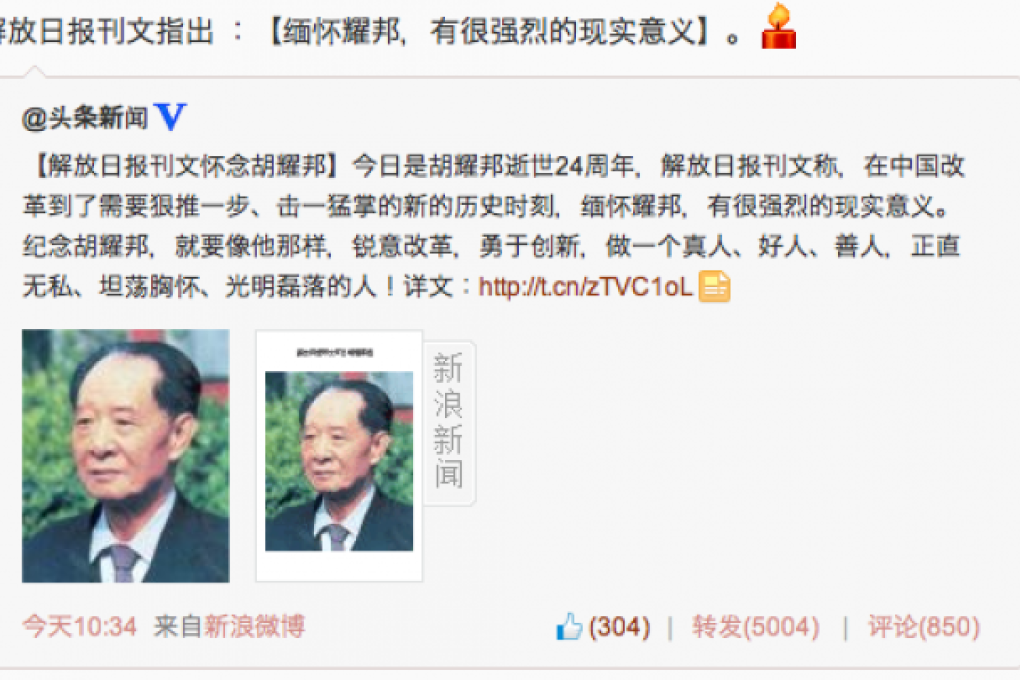Opinion | Remembering Chinese party leader Hu Yaobang still no easy task

On the anniversary of Hu Yaobang's death, thousands of Chinese quietly remembered the party leader who many thought was pushing for further political reform in the 1980s before the Tiananmen crackdown.
The 24th commemoration on Monday is the first under President Xi Jinping, whose father worked under Hu Yaobang.
Hu has been credited with spurring economic reforms after the Cultural Revolution, the rehabilitation of thousands persecuted during the tumultuous decade and a drive towards further political reforms.
He had suffered a heart attack during a Politburo meeting on the morning of April 15, 1989, and died hours later. His death led to unprecedented protests by students in Tiananmen Square, and throughout the country, who believed Hu had been sidelined for supporting political reforms. The movement was crushed on June 4, and commemorations of his death have since become taboo.
In 2005, the first major public commemoration of Hu's legacy was allowed on occasion of what would have been his 90th birthday. In 2010, then premier Wen Jiabao published a eulogy on Hu in the People's Daily.
On Monday, searches for "Hu Yaobang" on Chinese microblogs were blocked. Hundreds of users circumvented the censors by adding a space or candle symbols amid the three Chinese characters of his name.
